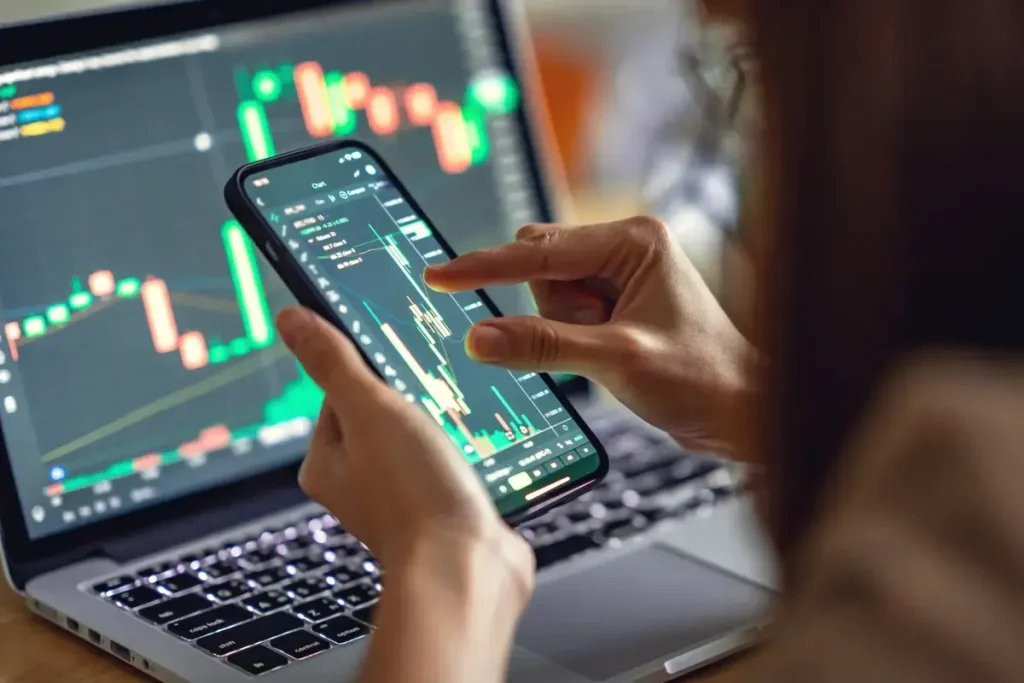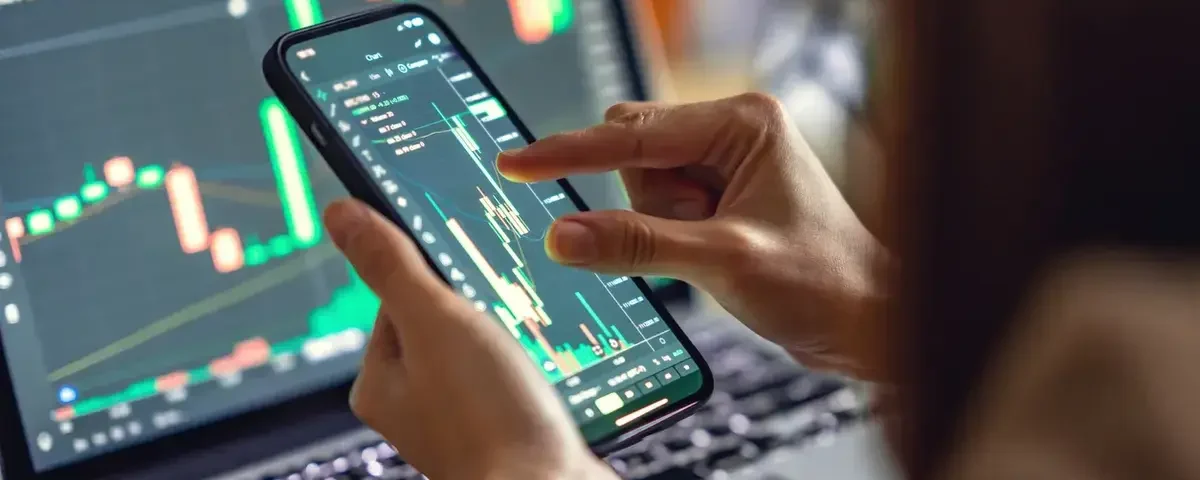
How to Choose a Forex Broker: A Comprehensive Guide
14/07/2024
Automated Forex Trading Systems: A Comprehensive Guide
14/07/2024Forex Demo Accounts: Practice Without Risk
Introduction to Forex Demo Accounts
Forex trading offers the potential for substantial financial gains, but it also comes with significant risks. For beginners and even experienced traders, jumping into live trading without adequate preparation can lead to costly mistakes. This is where Forex demo accounts come into play. A demo account allows traders to practice and hone their skills without risking real money. This comprehensive guide will explore the benefits of Forex demo accounts, how to use them effectively, and the transition to live trading. By understanding the importance of demo trading, traders can build confidence and develop strategies that enhance their chances of success in the Forex market.

What is a Forex Demo Account?
A Forex demo account is a simulation trading account provided by brokers that allows users to trade virtual funds in a real-time trading environment. These accounts mirror live market conditions, enabling traders to practice trading strategies, familiarize themselves with the trading platform, and understand market dynamics without financial risk.
Key Features of Forex Demo Accounts
- Real-Time Market Data: Demo accounts provide real-time quotes and charts, allowing traders to analyze the market and execute trades based on current conditions.
- Virtual Funds: Traders receive a specified amount of virtual money to trade with, eliminating the risk of losing real capital.
- Full Platform Access: Most brokers offer full access to their trading platforms, including all tools, indicators, and features available to live account holders.
- Simulated Trading Environment: The demo account environment replicates the live trading experience, including order execution, spreads, and price movements.
Benefits of Using a Forex Demo Account
1. Risk-Free Practice
The most significant advantage of a demo account is the ability to practice trading without risking real money. This feature is particularly beneficial for beginners who need to learn the basics of Forex trading and for experienced traders who want to test new strategies.
- Learning the Basics: New traders can learn how to navigate the trading platform, understand order types, and execute trades.
- Strategy Development: Traders can develop and refine their trading strategies in a risk-free environment, ensuring they are effective before applying them in live trading.
2. Familiarity with Trading Platforms
Different brokers offer various trading platforms, each with unique features and interfaces. A demo account allows traders to become familiar with a platform’s functionalities, tools, and navigation.
- Platform Features: Explore and utilize all available tools and indicators to understand how they can assist in trading decisions.
- Order Execution: Practice placing different types of orders, such as market, limit, and stop orders, to understand how they work.
3. Market Analysis Skills
Using a demo account helps traders improve their market analysis skills, including technical and fundamental analysis. By analyzing real-time data and executing trades, traders can develop a better understanding of market trends and price movements.
- Technical Analysis: Practice using technical indicators, chart patterns, and drawing tools to identify potential trading opportunities.
- Fundamental Analysis: Follow economic news and data releases to understand how they impact currency prices and develop strategies accordingly.
4. Building Confidence
Confidence is crucial for successful trading. A demo account allows traders to build confidence in their trading abilities and strategies without the fear of losing money.
- Developing Consistency: By practicing regularly, traders can develop consistent trading habits and discipline.
- Gaining Experience: Experience different market conditions, such as high volatility and low liquidity, to understand how to adapt trading strategies accordingly.
How to Use a Forex Demo Account Effectively
1. Set Realistic Goals
When using a demo account, it’s essential to set realistic goals that reflect your trading objectives and risk tolerance. Treat the demo account as if it were a live account to develop habits that will transfer to real trading.
- Risk Management: Practice proper risk management techniques, such as setting stop-loss orders and managing position sizes.
- Performance Metrics: Track your performance by setting goals for return on investment (ROI), win/loss ratio, and average trade duration.
2. Develop and Test Trading Strategies
Use the demo account to develop and test different trading strategies. Evaluate their effectiveness under various market conditions and refine them based on your findings.
- Backtesting: Backtest your strategies using historical data to see how they would have performed in the past.
- Forward Testing: Execute trades in the demo account to test strategies in real-time market conditions.
3. Keep a Trading Journal
Maintaining a trading journal is essential for tracking your progress and learning from your trades. Record details such as trade entries and exits, reasons for taking trades, and the outcomes.
- Analyze Trades: Regularly review your journal to identify patterns, strengths, and weaknesses in your trading.
- Adjust Strategies: Make necessary adjustments to your trading strategies based on insights gained from your trading journal.
4. Simulate Real Trading Conditions
To get the most out of a demo account, simulate real trading conditions as closely as possible. This includes trading with the same amount of capital you plan to use in a live account and following the same risk management rules.
- Capital Allocation: Use a demo account balance that matches the amount of money you intend to trade with in a live account.
- Emotional Discipline: Practice maintaining emotional discipline, avoiding impulsive decisions, and sticking to your trading plan.
Transitioning from Demo to Live Trading
1. Assess Your Readiness
Before transitioning to live trading, assess your readiness by evaluating your performance in the demo account. Ensure you have achieved consistent profitability and developed a robust trading strategy.
- Consistent Profits: Aim for consistent profits over a period of at least three to six months.
- Confidence: Ensure you have the confidence to execute trades without hesitation and manage risk effectively.
2. Start Small
When you start live trading, begin with a small amount of capital to minimize risk. Gradually increase your position sizes as you gain more experience and confidence.
- Micro or Mini Accounts: Consider opening a micro or mini account to trade smaller lot sizes and limit potential losses.
- Gradual Increase: Slowly increase your capital and position sizes as you become more comfortable with live trading.
3. Continue Learning
The transition to live trading is just the beginning of your trading journey. Continue learning and improving your skills by staying informed about market developments and refining your strategies.
- Stay Informed: Follow financial news, attend webinars, and participate in trading communities to stay updated on market trends and insights.
- Adapt and Evolve: Be prepared to adapt your strategies as market conditions change and continue to evolve as a trader.
4. Manage Expectations
Understand that live trading involves real emotions and financial risks that are not present in demo trading. Be prepared for the psychological challenges of live trading and manage your expectations accordingly.
- Accept Losses: Understand that losses are a part of trading and focus on long-term profitability rather than short-term gains.
- Emotional Control: Practice emotional control and discipline to avoid making impulsive decisions based on fear or greed.
Common Mistakes to Avoid in Demo Trading
1. Overtrading
Overtrading occurs when traders execute too many trades, often driven by the desire to take advantage of every perceived opportunity. This behavior can lead to inconsistent results and increased transaction costs.
Solution
- Quality Over Quantity: Focus on high-quality trade setups that meet your criteria and align with your trading plan.
- Set Limits: Establish limits on the number of trades you will execute in a day or week.
2. Ignoring Risk Management
Ignoring risk management principles in demo trading can lead to bad habits that carry over into live trading, resulting in significant losses.
Solution
- Practice Risk Management: Use stop-loss orders, manage position sizes, and aim for a favorable risk-reward ratio in your demo trading.
- Treat Demo as Live: Treat your demo account as if it were a live account to develop disciplined risk management habits.
3. Unrealistic Trading Conditions
Trading with an unrealistic amount of virtual capital or not following a trading plan can create a false sense of security and lead to poor performance in live trading.
Solution
- Simulate Real Conditions: Use a demo account balance that matches your intended live trading capital and follow a structured trading plan.
- Stay Disciplined: Maintain discipline in your demo trading by sticking to your strategies and risk management rules.
4. Lack of Review and Reflection
Failing to review and reflect on your demo trades can prevent you from learning from your mistakes and improving your strategies.
Solution
- Keep a Trading Journal: Record all your trades and regularly review your journal to identify areas for improvement.
- Learn from Mistakes: Analyze your mistakes and successes to refine your trading strategies and decision-making processes.
Conclusion
Forex demo accounts are invaluable tools for traders at all levels. They provide a risk-free environment to practice trading, develop and test strategies, and build confidence. By using a demo account effectively and transitioning to live trading with careful planning and discipline, traders can enhance their chances of long-term success in the Forex market. Remember, the skills and habits you develop in demo trading will form the foundation of your live trading experience, so take the time to practice diligently and continuously improve your trading approach.



